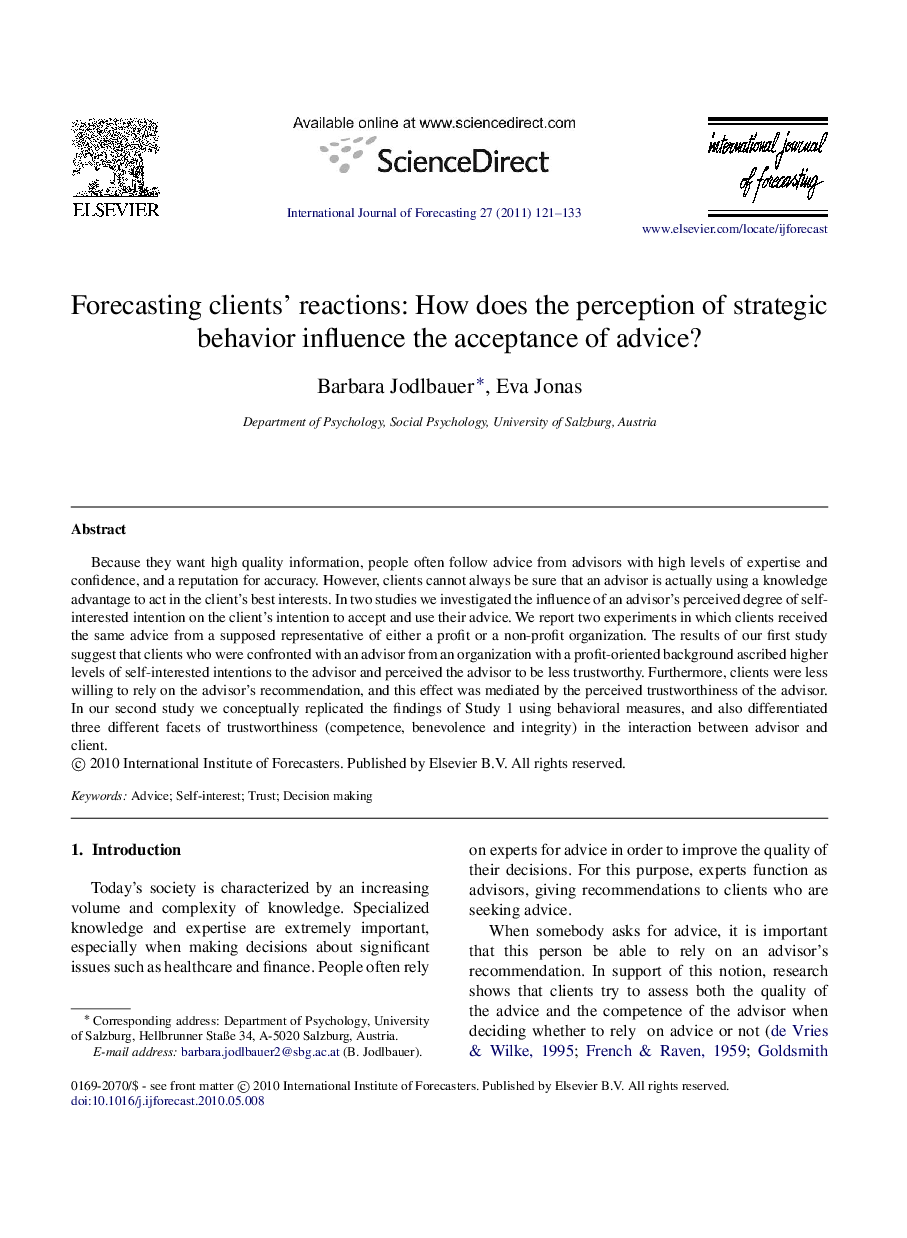| Article ID | Journal | Published Year | Pages | File Type |
|---|---|---|---|---|
| 998382 | International Journal of Forecasting | 2011 | 13 Pages |
Because they want high quality information, people often follow advice from advisors with high levels of expertise and confidence, and a reputation for accuracy. However, clients cannot always be sure that an advisor is actually using a knowledge advantage to act in the client’s best interests. In two studies we investigated the influence of an advisor’s perceived degree of self-interested intention on the client’s intention to accept and use their advice. We report two experiments in which clients received the same advice from a supposed representative of either a profit or a non-profit organization. The results of our first study suggest that clients who were confronted with an advisor from an organization with a profit-oriented background ascribed higher levels of self-interested intentions to the advisor and perceived the advisor to be less trustworthy. Furthermore, clients were less willing to rely on the advisor’s recommendation, and this effect was mediated by the perceived trustworthiness of the advisor. In our second study we conceptually replicated the findings of Study 1 using behavioral measures, and also differentiated three different facets of trustworthiness (competence, benevolence and integrity) in the interaction between advisor and client.
